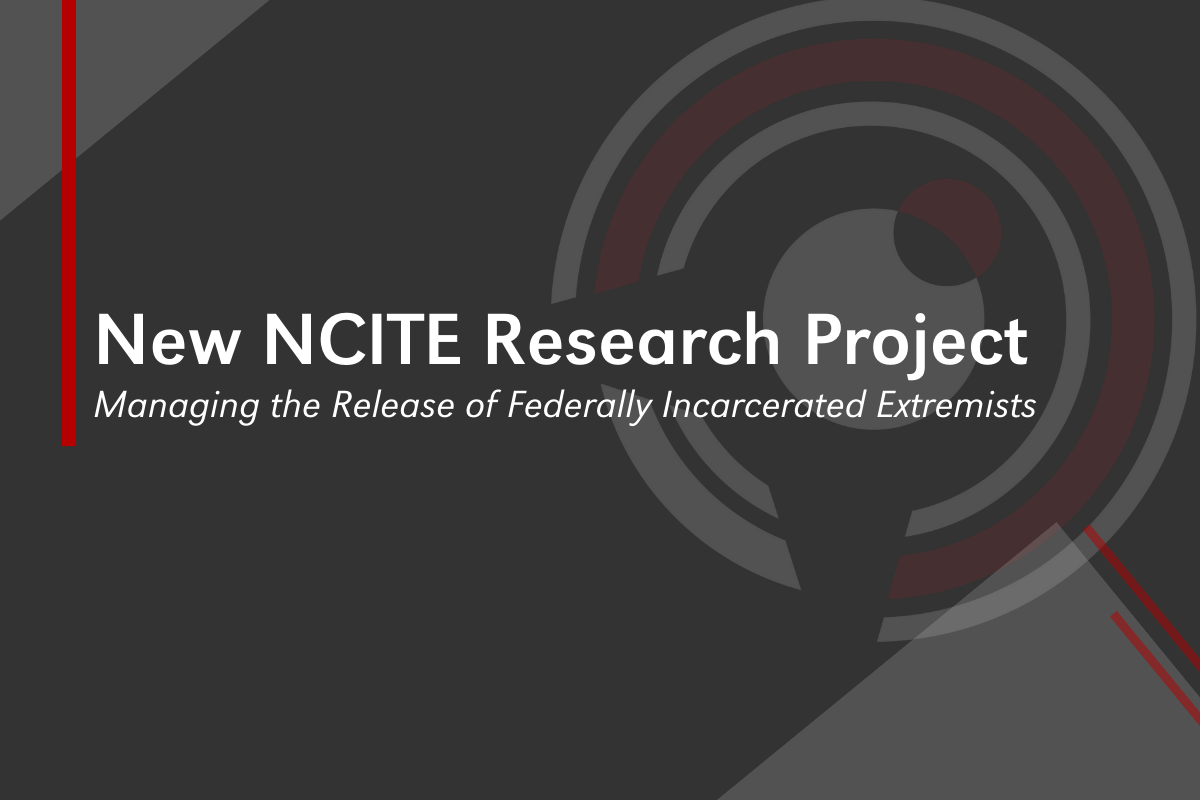NCITE Wins Contract to Help Federal Courts Manage Release of Federally Incarcerated Extremists
- published: 2023/09/07
- contact: NCITE Communications - NCITE
- email: ncite@unomaha.edu
- search keywords:
- violent extremists
- federal courts
- handbook

The National Counterterrorism Innovation, Technology, and Education Center (NCITE) has won a $1.6 million federal contract to create a handbook to help the federal court system manage formerly incarcerated individuals with backgrounds in violent extremism.
The handbook will address a pressing problem for the federal court system: U.S. persons with federal convictions connected to violent extremism who are scheduled for release back into their communities. Such individuals have unique challenges and needs. A growing body of academic evidence about how to manage this challenge exists, but the federal government has not yet consolidated this information in a way that can help those overseeing public safety.
The handbook will be designed to address that gap with a goal of minimizing both recidivism in general and reengagement with violent extremism. Its primary purpose is to provide a resource to those on the front lines of managing this unique population.
Erin Kearns, Ph.D., a criminologist at the University of Nebraska at Omaha (UNO) and NCITE head of prevention research initiatives, will lead the two-year project for the U.S. Department of Homeland Security’s Science and Technology Directorate.
“The goal is to simultaneously protect communities and help this population reintegrate into society,” Kearns said. “We understand the seriousness of this challenge and the importance of getting it right. To do this, we are bringing together top expert practitioners and scholars to provide guidance.”
The handbook will have internationally renowned experts in the management of this population, from institutes including the University of Maryland START, Harvard University, University of Cincinnati, Georgia State University, John Jay College of Criminal Justice, University College London, and the University of St. Andrews.
The handbook will be a resource to be shared with DHS and other government entities, namely with the Administrative Office of the U.S. Courts, which supports the federal judiciary. Paul Brennan, probation administrator within this federal office, said the handbook is needed to help probation and pretrial services officers engage more effectively in terrorism and violent extremism cases.
“We believe that this project will not only provide the information probation and pretrial officers need to enhance public safety but will lead to innovations in the field of extremist management,” said Brennan. “We are extremely grateful for the support of DHS and NCITE.”
The project represents a long-stated need by DHS to manage violent extremists in the federal court system. In a 2019 DHS strategy report, the agency noted that the U.S. lacked a robust prevention architecture and that people convicted of crimes related to terrorism and violent extremism “pose a unique risk during and after incarceration.”
We believe that this project will not only provide the information probation and pretrial officers need to enhance public safety but will lead to innovations in the field of extremist management.
Ajmal Aziz, program manager at the DHS Science and Technology Directorate, said the research will provide a crucial tool that will help communities be more resilient and prevent future acts of terrorism and violent extremism. DHS plans to share the handbook widely in its online Prevention Resource Finder and make it available to past and current grantees that do recidivism reduction programming.
“It’s extremely valuable for DHS to support partners and local prevention programs by providing them with the latest scientifically informed evidence to assist them in working with vulnerable individuals to ensure they no longer pose a threat,” Aziz said.
Research has begun with an end date of mid-June 2025. Other University of Nebraska at Omaha School of Criminology and Criminal Justice faculty are also involved: Director Gaylene Armstrong, Ph.D.; Zach Hamilton, Ph.D.; and Sadaf Hashimi, Ph.D. Noah Turner, a doctoral candidate at Michigan State University, has also been brought onto the project to serve as a research associate.
“It is an honor to connect our criminal justice faculty expertise with this important NCITE-led initiative,” said Armstrong. “Front-line federal supervision staff and the judiciary recognize the importance of ensuring policies and practices are data-informed, and we are here to provide that knowledge and support.”
The contract symbolizes the growing capability at NCITE, which is better able to take on more in-demand research projects.
NCITE Director Gina Ligon said the handbook represents NCITE’s relevance to the security of U.S. national, state, and local communities.
“Our center’s research is not meant to only be published in academic journals,” she said. “I am excited about the impact this project will have on public safety by translating the years of research we have done on this into the hands of the people who need it most."